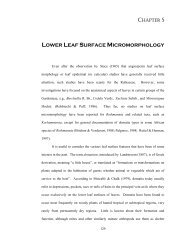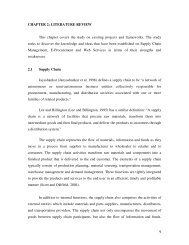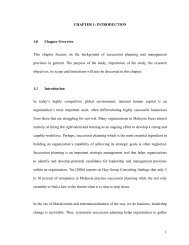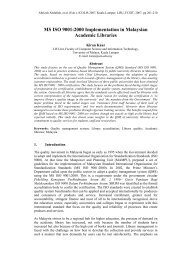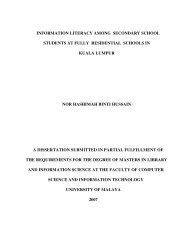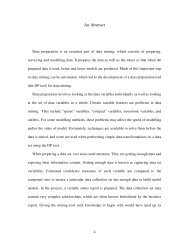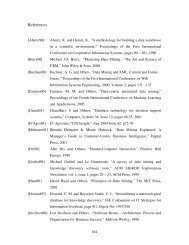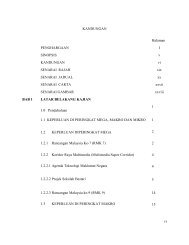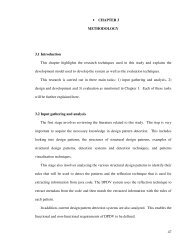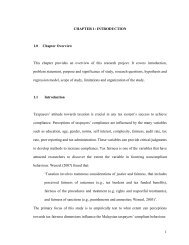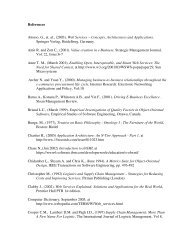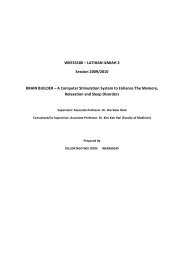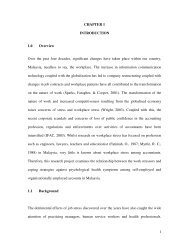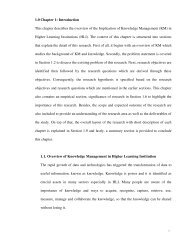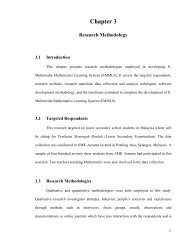Summary and recommendations ( good sample) - DSpace@UM
Summary and recommendations ( good sample) - DSpace@UM
Summary and recommendations ( good sample) - DSpace@UM
You also want an ePaper? Increase the reach of your titles
YUMPU automatically turns print PDFs into web optimized ePapers that Google loves.
Conclusions <strong>and</strong> Recommendations<br />
Evolution in personalisation<br />
Key trend is driven by the recognition that e-learning environments must support<br />
students’ diversity <strong>and</strong> individual needs. This diversity can include student differences in<br />
prior knowledge, competencies, learning style, communication preferences, cognitive<br />
style, <strong>and</strong> so on. Based on sound pedagogic strategies, personalized e-learning would<br />
ideally offer multimedia content, activities <strong>and</strong> collaboration adapted to students’ specific<br />
needs <strong>and</strong> influenced by their specific preferences <strong>and</strong> context. Personalised e-learning<br />
can enhance students’ e-learning experience in terms of relevancy, motivation,<br />
effectiveness, efficiency, <strong>and</strong> satisfaction. The challenge in successfully developing<br />
personalised e-learning services lies in the complexity of both, developing adaptive e-<br />
learning systems <strong>and</strong> authoring such adaptive e-learning experiences. Research in<br />
personalised learning technologies has so far focused on fusing intelligent systems <strong>and</strong><br />
(semantic) Web technologies. Examples of personalised e-learning environments include<br />
the Adaptive Hypermedia Architecture (AHA!), Knowledge Tree, <strong>and</strong> the Adaptive<br />
Personalised e-Learning Service (APeLs), which have achieved dynamic personalised<br />
composition of multimedia content based on a student’s prior knowledge, interests, <strong>and</strong><br />
demonstrated achievements. Research in this area should consider incorporating<br />
SCENE’s sound pedagogic strategies <strong>and</strong> emphasis on multiple intelligences as for the<br />
learning styles.<br />
A need for more in-depth community<br />
Future studies will need to determine if students’ multiple intelligences do change as a<br />
result of instructional methods <strong>and</strong> information technology. In this study, instructional<br />
325



